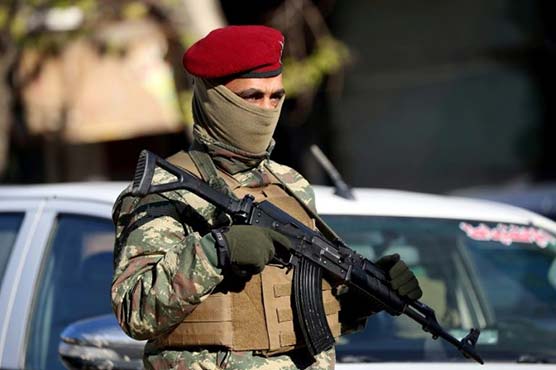Syria's regime on path to come in from the cold

Syria's war has killed more than 360,000 people and displaced millions since it began
(AFP) – Almost eight years into Syria s civil war, President Bashar al-Assad seems closer than ever to securing a comeback at home and in the Arab region, analysts say.
As 2018 ends, the Moscow-backed government in Damascus is in control of nearly two-thirds of Syria, after notching up a string of victories against rebels and jihadists.
And after a shock announcement by the US this month that it is to pull all 2,000 of its troops out of Syria, the regime also seems on track to regain influence in parts of the country under Kurdish-led control.
On Friday, Damascus sent troops to a northern area near the border with Turkey to stave off a long-threatened Turkish assault on the Kurdish-led Syrian Democratic Forces there.
It did so at the invitation of the Kurds, who feel exposed by the shock withdrawal announcement by the US, their principal backer.
The Kurds reaching out to the regime represented the latest in a string of achievements for Assad, said Mutlu Civiroglu, an expert in Kurdish affairs.
"He is consolidating his power day by day diplomatically and militarily," he said.
Assad had previously threatened to retake SDF-held oil-rich territory, whether through ongoing talks or by force.
"Rather than fighting with the Kurds, the government is now invited by the Kurds to enter these regions," Civiroglu said.
"There can be nothing better than this for Assad," the analyst added.
Aside from SDF-held northeastern Syria, the rebel-held region of Idlib remains beyond Assad s control, but is subject to a ceasefire deal.
The SDF are battling to expel the last Islamic State group fighters from their eastern holdout near the Iraqi border.
But the jihadists also retain a presence in the country s vast Badia desert.
Signal to the Arab states
Kurdish fighters have spearheaded the fight against IS in Syria, and the presence of US-led coalition members alongside the SDF in northern Syria had previously deterred Turkey from attacking.
The US announcement last week sparked renewed fears of an assault, after two previous Turkish incursions inside the war-torn country.
But President Donald Trump s pullout order has also sent a message to fellow Arab countries in the region, says Nicholas Heras, an analyst at the Center for a New American Security.
"Trump s decision to withdraw US forces from Syria sent the signal to the Arab states that they need to engage with Assad on their own terms and not wait for US policy to come into focus," he said.
Even before any US troops pull out, a drive to bring Assad back into the Arab fold seems to have picked up momentum in recent weeks.
The United Arab Emirates embassy in Damascus reopened on Thursday, ten days after Sudanese President Omar al-Bashir made the first visit of any Arab leader to the Syrian capital since the start of the war.
Bahrain has announced it will re-open its diplomatic mission.
Syria s war has killed more than 360,000 people and displaced millions since it began with the brutal repression of anti-Assad protests in 2011.
The United Nations estimates the conflict has cost the country close to $400 billion (350 billion euros).
Heras said the president would be seeking deals with wealthy Gulf states to help rebuild.
"Assad will look to build on his success in 2018 by scoring deals with the Arab states, especially the Gulf, to kick start the reconstruction of Syria," he said.
Reactivate Syria s membership
Syria was suspended from the Arab League in November 2011, as the death toll was escalating and several regional powers bet on Assad s demise.
Most Gulf states closed their embassies in 2012.
An Arab diplomat in Beirut who did not want to be named spoke to AFP about an unprecedented Arab "openness towards Damascus".
The United Arab Emirates "got the green light from Saudi Arabia to re-open their embassy," the diplomat said, hinting at Riyadh eventually following suit.
And a high-ranking Iraqi official has told AFP Baghdad was helping to mediate a restoration of ties between Damascus and Qatar, a country in a bitter feud with its Gulf neighbours. These efforts come ahead of the next Arab League summit to be held in Tunis in March.
On January 19 and 20, the Arab Economic Summit in Beirut could provide a further opportunity to discuss Syria s possible attendance at the Tunis event. Several sources say Egypt is playing a key role in efforts towards Assad s comeback on the Arab scene.
On December 22, Syrian intelligence chief Ali Mamluk, a key regime figure, visited Cairo for talks with Egyptian officials. A Lebanese diplomatic source who asked to remain unnamed told AFP "there is a project to reactivate Syria s membership" at the Arab League. "Egypt is supporting it," this source said.

